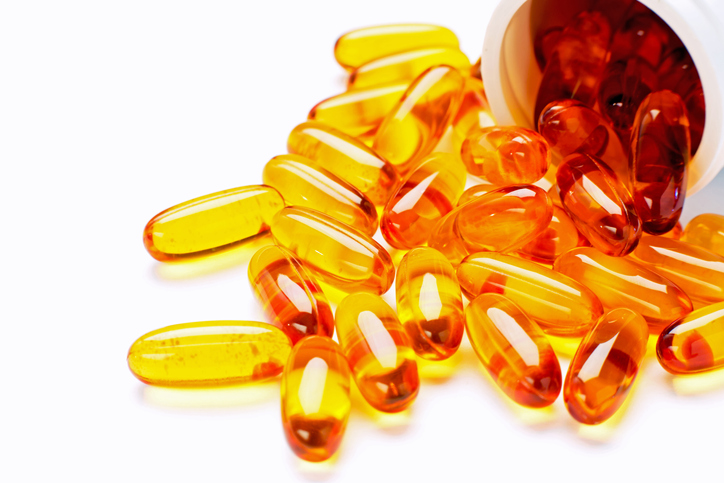
5 Reasons You May Want To Consider Krill Oil
By Joy Stephenson-Laws, J.D., Founder
Apparently, along with being an actress Nicole Kidman has been an ambassador for krill oil. It is said to have a whole slew of health benefits.
But first, what is krill oil?
To state the obvious, krill oil is oil that comes from krill.
But what are krill exactly?
Basically, krill are small, shrimp-like crustaceans, but they are not the same as shrimp. I bet your local seafood restaurant will not have krill on the menu or that your grocery store will not have krill in the seafood department.

Krill are one of the most abundant species in the world and are consumed by a variety of fishes, birds and whales. They are also harvested to feed farm-raised fish. Krill are said to be very salty and have a stronger fish flavor than shrimp.
In some cultures, krill is consumed as food. For example, Japanese cuisine may incorporate krill. They call it “okiami.” And a popular Norwegian snack is krill paste with crackers. But like I said, many of us will probably not come across krill for food in our regular daily life.
You do, however, have access to krill oil supplements (just as you do fish oil supplements).
“Krill is a rich source of high-quality protein, with the advantage over other animal proteins of being low in fat and a rich source of omega-3 fatty acids. Antioxidant levels in krill are higher than in fish, suggesting benefits against oxidative damage. Finally, the waste generated by the processing of krill into edible products can be developed into value-added products,” reports the National Institutes of Health (NIH).
So what are some additional potential health benefits of krill oil?- Krill oil may help control blood sugar levels.
In a recent study published by the National Institutes of Health (NIH) that compared krill oil and fish oil, the evidence suggested that krill oil was more effective at reducing blood glucose levels.
- Krill oil may aid in heart health and more.
Just like fish oil, krill oil is a great source of omega-3 fatty acids. The benefits of omega-3 fatty acids include a reduced risk for heart attack and stroke, increased protection against Alzheimer’s disease, assisting in healthy neurological and eye development for fetuses and newborns, lower cholesterol and improvement in symptoms of rheumatoid arthritis. There are also studies examining the use of omega-3 for depression, bipolar disorder and inflammatory bowel disease.
- Krill oil may provide pain relief.
Another study published by the NIH found evidence which suggested that krill oil may provide pain relief due to its anti-inflammatory properties. It may even help provide relief from pain related to arthritis.
Something to keep in mind:
“Neptune Krill Oil (NKO) which is extracted from Antarctic krill contain higher levels of omega3 fatty acids than other types of KO [krill oil],” reports the NIH.
- Krill oil may help fight obesity.
One study involving mice that were fed a lard-based high fat diet which was then substituted with krill oil for 12 weeks found, “The KO [krill oil] fed mice had less body weight gain, less fat accumulation in tissue such as adipose and liver.”
This study also backs up the earlier point about maintaining healthy blood sugar levels.
“KO containing diets can significantly improve fast blood glucose concentration and glucose intolerance leading to enhance insulin sensitivities in obese animals.”
- Krill oil may fight (premenstrual syndrome) PMS symptoms.
“It appears that omega-3 fatty acids [which krill oil contains] may reduce the psychiatric symptoms of PMS including depression, nervousness, anxiety, and lack of concentration and may also reduce the somatic symptoms of PMS including bloating, headache and breast tenderness. These effects increased by longer duration of treatment,” according to the National Institutes of Health (NIH).
I cannot stress enough how important it is to consult your doctor or a competent healthcare professional before taking krill oil or any other supplement. This is especially important for those who have existing health issues, are currently taking medications such as blood thinners or who are pregnant or breastfeeding.
And remember that not all supplements are created equal. You want to take supplements with healthy ingredients from a reputable company. A competent healthcare professional can help you find the best one to suit your needs.
If you are vegan or vegetarian, krill oil is probably not for you, but you can ask your doctor about plant-based supplements that will help you get those omega-3 fatty acids.
Enjoy your healthy life!
The pH professional health care team includes recognized experts from a variety of health care and related disciplines, including physicians, attorneys, nutritionists, nurses and certified fitness instructors. This team also includes the members of the pH Medical Advisory Board, which constantly monitors all pH programs, products and services. To learn more about the pH Medical Advisory Board, click here.







